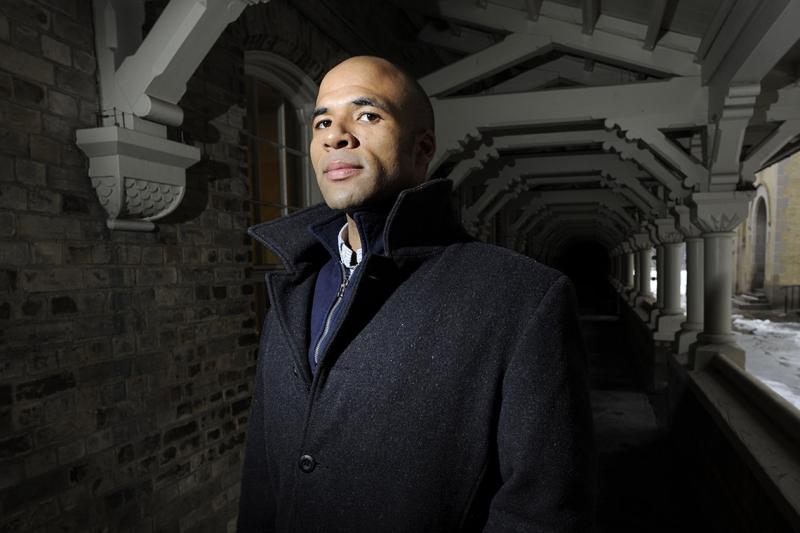Introduction: Tackling Cannabis Injustice Through Literature
Akwasi Owusu-Bempah, a professor at the University of Toronto Mississauga, has co-authored a book that illuminates the severe consequences of cannabis laws on racial injustice. Titled “Waiting to Inhale,” this insightful work guides readers through the devastation experienced by affected communities and offers a comprehensive plan for meaningful change.
The Profound Impact of the War on Drugs and Systemic Targeting
The United States’ War on Drugs, initiated in the 1970s, disproportionately affected Black and Indigenous communities. Similarly, in 1982, Canadian Prime Minister Brian Mulroney launched a national drug strategy. These campaigns played a significant role in the systemic targeting of racialized communities and the criminalization of drug use. “Waiting to Inhale,” penned in collaboration with entrepreneur and cannabis industry leader Tahira Rehmatullah, delves into drug law enforcement and policing, with a particular focus on cannabis. It emphasizes the far-reaching implications for individuals, families, and communities caught in the crossfire of these policies.
Unveiling the Human Stories Behind Cannabis Convictions
The authors present interviews with people who have served unjust cannabis convictions, personalizing the need for criminal justice reform in the United States. These powerful stories illustrate the difficulties faced by those impacted by the War on Drugs and emphasize the importance of change.
Evelyn La Chapelle, a young mother from Oakland, California, spent 87 months in prison after a 2013 arrest for a minor role in a cannabis distribution operation, despite having no previous criminal record. La Chapelle was released in 2018 and has since become a social justice advocate and entrepreneur, offering employment to others with similar stories.
Corvain Cooper was sentenced to life in prison without parole for non-violent marijuana offenses under the federal three-strikes law. Cooper’s life sentence was later commuted by President Donald Trump in January 2021 after serving eight years. Since his release, Cooper has become an advocate for criminal justice reform and cannabis legalization.
Parallels and Differences in the Canadian Context
While the book’s primary focus is on the United States, the Canadian context offers similar challenges. Owusu-Bempah’s work in Canada strives to reform the criminal justice system, addressing anti-Black racism and the overrepresentation of Black Canadians in federal prisons.
The Path Forward: Addressing Injustices and Rebuilding Communities
To challenge racist policies and rebuild communities affected by cannabis criminalization, Owusu-Bempah and Rehmatullah outline key action items. These include clearing records of those convicted, redistributing tax revenue from legal cannabis sales to revitalize neighborhoods, and creating employment opportunities for people with cannabis or other drug convictions.
Cannabis Legalization and Its Implications
The book discusses the recent wave of cannabis legalization in North America and the potential implications for marginalized communities. While cannabis legalization has opened up new economic opportunities and generated substantial tax revenues, the authors argue that many of the benefits have not been distributed equitably. In particular, communities that have been disproportionately impacted by the War on Drugs have not seen the same level of economic development or social progress as others.
To address this issue, the authors advocate for the establishment of social equity programs within the legal cannabis industry. These programs aim to provide financial assistance, education, and mentorship to individuals from communities that have been disproportionately affected by cannabis prohibition. By offering support and resources to these communities, social equity programs can help to create a more inclusive and diverse cannabis industry.
In addition to promoting social equity, the authors argue that cannabis legalization should also prioritize restorative justice. This includes expunging the records of individuals who have been convicted of non-violent cannabis offenses and providing support for those who have been released from prison. By addressing the lingering consequences of cannabis prohibition, restorative justice measures can help to break the cycle of poverty and marginalization that many individuals face.
The Importance of Community-Based Solutions

Throughout the book, Owusu-Bempah and Rehmatullah emphasize the importance of community-based solutions in addressing the injustices associated with cannabis criminalization. They argue that grassroots organizations and local leaders have a crucial role to play in advocating for change and providing support to affected communities.
For example, the authors highlight the work of various community organizations that are dedicated to helping individuals who have been negatively impacted by the War on Drugs. These organizations offer a range of services, including legal assistance, job training, and mental health support. By working directly with affected communities, these organizations can better understand the unique challenges that individuals face and develop targeted solutions to address these issues.
Furthermore, Owusu-Bempah and Rehmatullah argue that community-based solutions are essential for ensuring that the benefits of cannabis legalization are distributed equitably. By involving local leaders and community members in the decision-making process, policymakers can develop more inclusive and effective policies that address the needs of all stakeholders.
Conclusion: A Powerful Call to Action for Change
“Waiting to Inhale” exposes the harsh realities of cannabis laws on marginalized communities, offering a valuable resource for understanding the injustices at hand and providing practical solutions for a more just, equitable future. By promoting social equity, restorative justice, and community-based solutions, the authors outline a comprehensive framework for addressing the lasting consequences of cannabis criminalization.
As cannabis legalization continues to gain momentum worldwide, Owusu-Bempah and Rehmatullah’s groundbreaking work serves as a timely reminder of the importance of addressing the injustices of the past. Through their meticulous research and compelling storytelling, the authors challenge readers to confront the systemic issues that have shaped the War on Drugs and to envision a more equitable and compassionate future for all.











